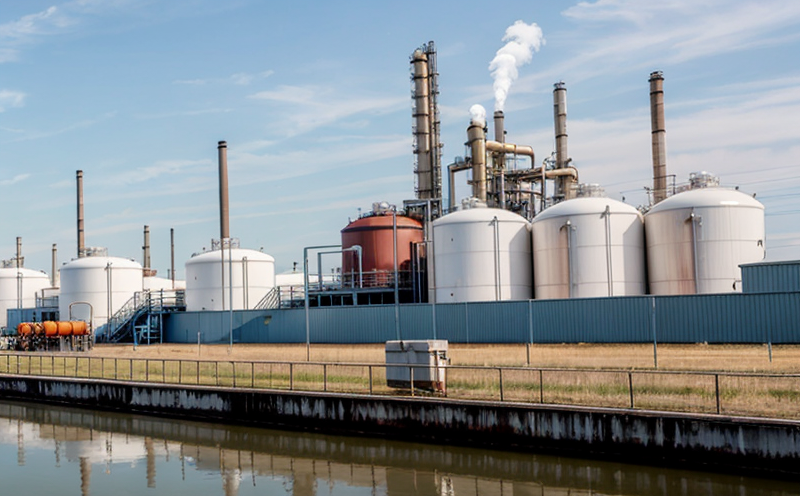ISO 6468 Pesticide Residue Safety Testing in Water
ISO 6468 is a crucial standard that ensures the safety of water supplies by determining pesticide residue levels. This method plays an essential role in safeguarding public health and environmental integrity. The protocol focuses on detecting trace amounts of pesticides in water samples, ensuring compliance with international standards.
The process involves collecting water samples from various sources such as rivers, lakes, and municipal supply systems. Samples are then processed using advanced laboratory techniques to extract pesticide residues accurately. Instrumentation like gas chromatography coupled with mass spectrometry (GC-MS) is employed for precise analysis. The standard's primary goal is to identify potential risks associated with pesticide exposure in water.
The test procedure outlined in ISO 6468 requires meticulous sample preparation, including filtration and extraction steps, followed by instrumental analysis. Results are reported as parts per billion (ppb) or micrograms per liter (µg/L), indicating the concentration of pesticides found in the water samples.
Compliance with this standard is mandatory for industries that use or release pesticides into the environment. By adhering to ISO 6468, businesses can ensure they are meeting regulatory requirements and protecting public health. The service provides comprehensive support to clients seeking assurance that their operations comply with international safety standards.
Our team of experts uses state-of-the-art equipment and follows strict protocols to deliver reliable results within the specified tolerances. We offer turnkey solutions tailored to your specific needs, ensuring accurate and consistent testing every time.
Industry Applications
- Agricultural Industry: Ensures compliance with environmental regulations by monitoring pesticide runoff in irrigation systems.
- Municipal Water Supply: Protects drinking water sources from contamination, ensuring safe consumption for the general public.
- Pharmaceutical Sector: Guarantees that pharmaceutical products do not contain harmful residues from agricultural chemicals used in production processes.
- Research Institutions: Provides data necessary for developing safer pesticides and improving water quality monitoring techniques.
Environmental and Sustainability Contributions
The ISO 6468 standard significantly contributes to environmental sustainability by promoting responsible pesticide use. By identifying potential hazards early, this testing method helps prevent widespread contamination of water resources.
Water bodies play a vital role in supporting ecosystems and human activities. Ensuring that these resources remain free from harmful pesticides is critical for maintaining ecological balance and public health. Our ISO 6468 compliant testing services help organizations contribute positively towards environmental conservation efforts.
Through rigorous adherence to this standard, we support sustainable development goals by reducing risks associated with pesticide exposure in water supplies. This proactive approach not only enhances operational efficiency but also fosters trust among stakeholders regarding the reliability of our services.
Use Cases and Application Examples
- Agricultural Runoff Monitoring: Detecting pesticide residues in irrigation runoff to prevent contamination downstream.
- Municipal Water Treatment: Implementing regular testing protocols to ensure treated water meets safety standards before distribution.
- Pharmaceutical Manufacturing: Verifying that final products do not contain trace amounts of pesticides from agricultural inputs.
- Environmental Research: Studying the impact of different pesticide formulations on aquatic life over time.





